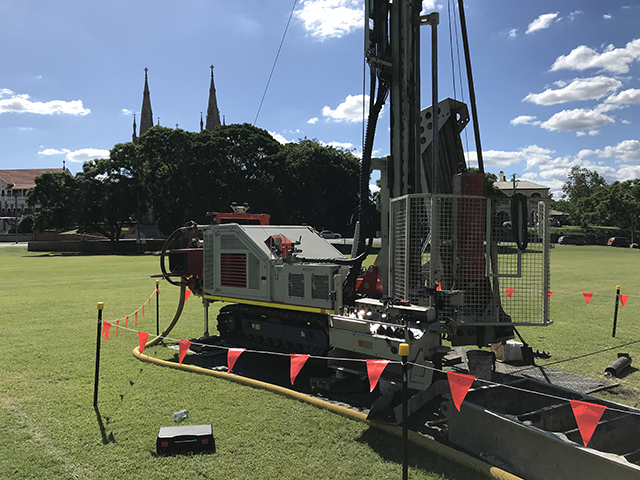
When a stormwater pipeline in Ipswich was at risk of collapse, a local council’s proactive planning helped to protect the continuity of activities for park goers above.
While sport and recreational activities are part of the Australian way of life, COVID-19 has restricted access to many of the indoor facilities that enable these activities. As a result, the use of ‘green spaces’ has increased dramatically as people have been forced out of gyms, sports centres and public swimming pools to stay active.
Understanding the social health benefits associated with community sport infrastructure, local governments are putting immense efforts into ensuring Australia’s green spaces are operating safely to sustain the increased demand. This involves not only maintaining what’s on the surface but also managing the critical infrastructure that lies beneath.
Given the critical nature of essential infrastructure, assets such as water, wastewater and stormwater pipelines require regular condition assessment. This provides in-depth information about an asset’s overall health and can avoid catastrophic social, economic and safety ramifications through early remedial intervention.
After completing a condition assessment of its stormwater assets, Ipswich City Council contacted specialist in water infrastructure, Interflow, to restore a failing section of pipeline beneath the busy outdoor recreational space, Timothy Molony Oval.
Keeping the safety and wellbeing of park goers a primary focus, Interflow and Ipswich City Council worked collaboratively to repair the underground deteriorated section before it was able to pose a risk to the community.
Steve Latimer, one of Interflow’s Business Development Managers in Queensland, describes the importance of proactive asset management.
“Condition assessments allow councils to prioritise the maintenance and repair of their underground assets,” he said.
“By developing a proactive program of works, councils can address weaknesses within their network before something goes wrong and they require emergency repair.”
The early remedial intervention of the asset avoided community disruption and the cost of major construction works. The works were further streamlined by Interflow’s use of trenchless technology, a type of underground construction that requires the use of few or no trenches on the surface or at street level.
The Company’s trenchless Rotaloc relining solution, halved the expected project time of traditional ‘dig and replace’ methods, whilst maintaining a small site footprint. As a result, Ipswich’s Timothy Molony Oval could continue to support the sports and recreation needs of its local community throughout one of the toughest periods the world has faced.
“It’s moments like these that make us realise the value of the work we do,” Steve said.
“By helping our customers manage their critical assets in the most efficient ways, we are creating the best future for the communities we serve.”